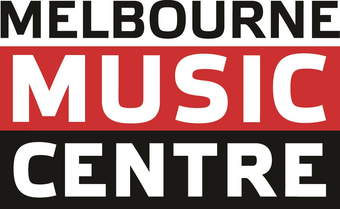Music is more than just notes and melodies; it's a universal language that brings people together. While the joy of playing an instrument or singing alone is undeniable, the social aspect of music is a powerful force for improving mental health. In this post, we'll explore how group musical activities, such as lessons, bands, and ensembles, foster a sense of community and contribute to mental well-being.
The Power of Music in Community
Human beings are inherently social creatures. We thrive on connection and community. Music, with its ability to transcend language barriers and evoke emotions, is a natural facilitator of social interaction. Here's how group musical activities can positively impact mental health:
1. Sense of Belonging: Group musical activities provide individuals with a sense of belonging and inclusion. Being part of a band, choir, or ensemble creates a bond among members, reducing feelings of isolation.
2. Social Support: In a musical group, members often become a support system for each other. Sharing the challenges and triumphs of learning and performing together fosters a supportive and understanding community.
3. Stress Reduction: Making music with others can reduce stress levels. The act of playing or singing in harmony encourages relaxation and synchrony among group members.
4. Increased Confidence: Group performances can boost self-confidence and self-esteem. Sharing your musical talents with others and receiving positive feedback can enhance feelings of self-worth.
5. Emotional Expression: Music is a powerful tool for expressing emotions. In a group setting, individuals can share their feelings and connect with others who may have similar experiences.
6. Cognitive Benefits: Group musical activities stimulate cognitive functions like memory, problem-solving, and creativity. Engaging with others in musical tasks enhances cognitive development.
Types of Group Musical Activities
There are various group musical activities that cater to different interests and skill levels:
1. Group Lessons: Whether it's guitar, piano, or voice, group lessons offer an opportunity to learn and grow together. They provide a supportive environment for beginners to advanced musicians.
2. Choirs and Vocal Ensembles: Singing in a choir or vocal ensemble allows individuals to harmonize with others, promoting a sense of unity and shared achievement.
3. Bands and Orchestras: Playing in a band or orchestra encourages collaboration and teamwork. It's a chance to create something beautiful as a collective.
4. Community Music Groups: Many communities offer music groups for people of all ages and skill levels. These groups are inclusive and often focus on the joy of making music together.
5. Music Therapy Groups: Music therapy sessions are designed to address emotional and psychological needs. Group sessions allow individuals to explore their feelings in a supportive environment.
The Healing Power of Harmony
The social aspect of music is a powerful force for mental well-being. It provides a sense of belonging, reduces stress, and offers a platform for emotional expression. Whether you're a novice or an experienced musician, there's a musical community waiting for you.
Music is not just a solitary endeavor; it's a communal celebration of human connection. Through group musical activities, we find harmony not only in melodies but in the bonds we create with others. So, let the music unite, the voices blend, and the instruments harmonize, for in the company of fellow musicians, we discover the healing power of harmony.

